Sports Law: A necessary evil to some for existence
View(s): Sports Law is almost a dirty word in general sporting parlance. Though it was conceptualised with good intentions and was the need of the hour, it seems to have lost its way. Of late, most Sports Ministers, hiding behind the strength of the law, have taken Sports in this country to be on the verge of the ‘point of no return’.
Sports Law is almost a dirty word in general sporting parlance. Though it was conceptualised with good intentions and was the need of the hour, it seems to have lost its way. Of late, most Sports Ministers, hiding behind the strength of the law, have taken Sports in this country to be on the verge of the ‘point of no return’.
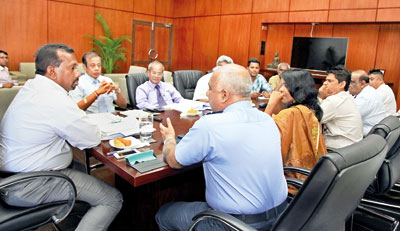
Where it all began: The first round of talks on the much debated Ammended Sports Law took place few years back, but the situation remains the same
The following expert views would, we hope, throw some light on how things stand
| Trixi Nanayakkara (Retired Director- Sports, Colombo Municipal Council and former President- Sri Lanka Netball Federation)
|
| G.L.S. Perera (Former Secretary- Athletic Association of Sri Lanka)
|
| Susil Ranasinghe (Former Secretary- Sri Lanka Volleyball Federation)
They are the: National Sports Council (NSC), National Olympic Committee (NOC), establishment and administration of the National Sports Fund (NSF), registration and supervision of the National Sports Associations (NSA), District Sport Committees and Schools of Sports. To achieve these objectives, following the enactment of the Sports Act, there have been over 20 Gazette notifications and 13 ministers who have given guidance and leadership to the Ministry of Sports, to date. The first objective of the Sports Act was the establishment of the NSC with the following guiding principles. Para 1: Section 4(1): There shall be a Council called ‘The National Sports Council, to advise the (Sports) Minister on matters connected with the Promotion, Development and Control of Sports in Sri Lanka. Section 4(2): ‘The Council shall comprise of (a) Chairman and 12 other members (b) Director General of Sports (c) Secretary; all appointed by the Minister. In the past, officers appointed to the NSC were those involved in major sports in Sri Lanka and with experience in Sports administration. Advising the Minister of Sports on the Development of Sports within Sri Lanka has been the key role of the NSC, for which they need to have very close relationships with the NSAs, though it is not certain whether those objectives were achieved by them. The second objective of the Sports Act was the establishment of DSCs to promote, popularise and raise the standards of Sports. However, as of now, it is doubtful whether such DSCs have been started. DSCs coordinate between trainers and sportsmen/women within junior and senior teams, making it possible to identify talented Athletes in distant areas and provide them with the necessary training, so that they could be brought up to National level. New regulations introduced into the Sports Act by the Sports Minister, is believed to bring NSAs to a more active level. It is also necessary to inquire into the annual progress of the NSAs, for which procedures should be introduced to ascertain their progress. The National Institute of Sports Science to develop sportsmen/women further, should be brought up to the level of conferring Degrees to coaches and administrators. Though there are Sports Degree courses at Sabaragamuwa, Kelaniya and Sri Jayawardenapura Universities, it is my view that Sports education of the Institute of the Sport Science Ministry is more scientific. The National Sports Policy (NSP) of Sri Lanka was published by Gazette Extraordinary No. 1758/23, of May 16, 2012. Vision- Sri Lanka to be the strongest in Asia in Sports; Mission: To be a nation of champions in Sports; Objectives- A healthy, disciplined, unified and prosperous society. and this sport policy which includes 45 elements and it is not seen whether this policy is being implemented today. Sports Minister Dayasiri Jayasekara, on assuming duties, said that, within the next two years, the NSP would be implemented. As such, it is the duty of Sports authorities to introduce the policy and, if necessary, to make any changes for its effective implementation. It is not appropriate to change the NSP, with the change of government. The best example is India, when its Government formulated its NSP for the first time in 1984, with the objective of raising the standard of Sports in the country. This policy states that the progress made in the implementation of its NSP would be reviewed every five years, to determine its further course of action, as may be necessary, following such reviews. Singapore’s NSP was formed on July 21, 1973, by Prime Minister Lee Kuwan Lou. He re-launched it as the ‘Sports for All’ policy, while again changing it in 2001 as Sporting Singapore. In 2012, it was changed to Vision 2030, and continues as such to date. Hence, whatever the Sports Acts or Regulations introduced, an NSP, if not implemented, would make it difficult to take forward a country’s Sport. All this is easier said than done. But implementation, though arduous, is the key to success. Though the Sports Law was established 43 years ago, unfortunately, none of the Sports Ministers have been able to perform his/her duties accordingly for the betterment of Sports in this country. |
| C. Nanda Mathew (Former Sports Minister, 1989-1994)
I always ensured that Sports moved in the right direction. I treated all officials of the Sports Ministry, Sports associations and Athletes equally. I had no political agenda. I was not biased towards any official, but I never hesitated to punish wrongdoers. Nevertheless, now, I cannot make a statement on this issue while I am also not interested to know anything regarding this matter. |



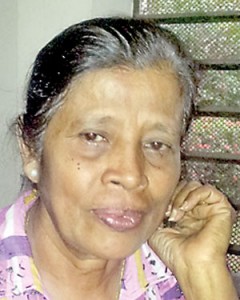 I think the current Sports Law is very strong and quite helpful to the country. This Sports Law has all the ingredients to boost local sports and for its administration to move forward. It is now 43 years since the Sports Law was established in this country. But it has been revised and amended on more than 10 occasions. Yet, it is sad to note that we are still struggling to put Sports administration in the right path. The main reason we are unable to move forward is because of the Sports Ministry officials’ interference with the ministry’s coaches. Another reason for this drawback is because all these officials are not honest. I think the National Sports bodies have come under pressure with this kind of interference by Ministry officials. Consequently, the Sports Ministry will find it difficult to implement the Sports Law in a proper manner. The Sports Law was active and functioned smoothly from 1973 to 1994. I can remember Sports Minister Nanda Mathew issued an order prohibiting any Sports Ministry official or Department of Sports Development officials to hold office in any National Sports Body. With this move, the NSAs were able to act independently. This was a very good decision. But later, this rule was changed by successive Sports Ministers. After 1994, the Sports Law was implemented mainly for the benefit of the Sports Minister, not for the betterment of Sport. As a result, there was a slew of misconduct within the Sports Ministry, through the amendments of the Sports Law. Only those who have competed at National level could come into office (except the Treasurer) for any Sports association. However, with the current Sports Law, the Sports Minister has the powers to appoint an individual who has not competed at National level into a Sports Body. These unqualified individuals tend to occupy the top post for over 10 years. As a result, a few officials have even complained to the Human Rights Council against these culprits. If all the AGM’s were conducted according to the Sports Law, these unfortunate incidents could have been avoided. It is mandatory for all NSAs to release their audit reports and annual tournaments. All non-functioning associations should be suspended. But, at the moment, some organisations conduct their AGM’s without issuing audit reports. The Ministry has also given the green light for these organisations to go ahead. As a result, all honest officials tend to move away, while some corrupt officials remain in office. I see one good move in the amendment to the current Sports Law, by Minister Dayasiri Jayasekera, according to which, the Treasurer should be a qualified accountant, which is a very good move. They always understand government financial rules and because of that, they act in a proper manner. All crises within NSAs take place due to the appointment of unqualified Treasurers and due to misappropriation of funds.
I think the current Sports Law is very strong and quite helpful to the country. This Sports Law has all the ingredients to boost local sports and for its administration to move forward. It is now 43 years since the Sports Law was established in this country. But it has been revised and amended on more than 10 occasions. Yet, it is sad to note that we are still struggling to put Sports administration in the right path. The main reason we are unable to move forward is because of the Sports Ministry officials’ interference with the ministry’s coaches. Another reason for this drawback is because all these officials are not honest. I think the National Sports bodies have come under pressure with this kind of interference by Ministry officials. Consequently, the Sports Ministry will find it difficult to implement the Sports Law in a proper manner. The Sports Law was active and functioned smoothly from 1973 to 1994. I can remember Sports Minister Nanda Mathew issued an order prohibiting any Sports Ministry official or Department of Sports Development officials to hold office in any National Sports Body. With this move, the NSAs were able to act independently. This was a very good decision. But later, this rule was changed by successive Sports Ministers. After 1994, the Sports Law was implemented mainly for the benefit of the Sports Minister, not for the betterment of Sport. As a result, there was a slew of misconduct within the Sports Ministry, through the amendments of the Sports Law. Only those who have competed at National level could come into office (except the Treasurer) for any Sports association. However, with the current Sports Law, the Sports Minister has the powers to appoint an individual who has not competed at National level into a Sports Body. These unqualified individuals tend to occupy the top post for over 10 years. As a result, a few officials have even complained to the Human Rights Council against these culprits. If all the AGM’s were conducted according to the Sports Law, these unfortunate incidents could have been avoided. It is mandatory for all NSAs to release their audit reports and annual tournaments. All non-functioning associations should be suspended. But, at the moment, some organisations conduct their AGM’s without issuing audit reports. The Ministry has also given the green light for these organisations to go ahead. As a result, all honest officials tend to move away, while some corrupt officials remain in office. I see one good move in the amendment to the current Sports Law, by Minister Dayasiri Jayasekera, according to which, the Treasurer should be a qualified accountant, which is a very good move. They always understand government financial rules and because of that, they act in a proper manner. All crises within NSAs take place due to the appointment of unqualified Treasurers and due to misappropriation of funds.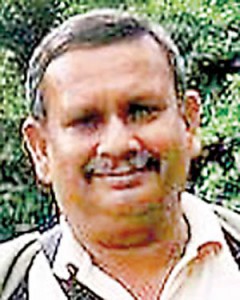 I have been involved with the AASL in various positions, since the Sports Act was inaugurated in 1973. I think there was a good understanding between the Sports Ministry and the Sports Bodies during the early stages, while both parties worked together for the betterment of Sports in the country. Also, we had some efficient Sports administrative officers in the Ministry of Sports during this period. The reason for this is because many veteran sportsmen were involved with their respective Sports Bodies. Both parties were keen to develop Sports and always joined hands, except for a couple of minor controversies. In addition, all former Sports Ministers understood their responsibilities and did the maximum to improve Sports within their limits. Also, Sports Ministry officials were also experienced individuals who had tremendous knowledge of the Sport during their period. They all performed their duties to perfection, while always respecting the Sports Law. This continued until 1994, when the situation changed with many Sports Ministers and officials violating the Sports Law for their personal benefits. The best example of this was the incident that occurred in 2012. On that occasion, the AASL was dissolved by the Sports Ministry without a valid reason, when nominations had been called for the AGM. As a result, the Sports Ministry was taken to task by the IAAF and severely warned for acting in that manner. The Sports Ministry was then forced to hold the AASL AGM immediately. The Sports Law was once again abused by the Sports Ministry, as they extended the term of the NOC officials. They were initially allowed to stay in office for two 4-year terms but, with the change, they had the authority to remain in power forever. However, a few years later, the Sports Law was once again changed with all Sports administrators restricted to one four-year term. With this result, the entire Sports system suffered a huge blow, especially the local administration, while international relations also took a back seat. The Sports Law took another change recently when the Sports Minister introduced an age barrier for a selected number of officials. The NSF is an important aspect of the Sports Law but, currently, it is being utilised just for foreign tours involving close associates of the Sports Minister. The new Sports Law also allows politicians who have competed at National level, to hold office. But this move has only helped a couple of individuals to gain their personal objectives. It is clear that most of the amendments to the Sports Law in the recent past, were aimed at fulfilling political and personal gains.
I have been involved with the AASL in various positions, since the Sports Act was inaugurated in 1973. I think there was a good understanding between the Sports Ministry and the Sports Bodies during the early stages, while both parties worked together for the betterment of Sports in the country. Also, we had some efficient Sports administrative officers in the Ministry of Sports during this period. The reason for this is because many veteran sportsmen were involved with their respective Sports Bodies. Both parties were keen to develop Sports and always joined hands, except for a couple of minor controversies. In addition, all former Sports Ministers understood their responsibilities and did the maximum to improve Sports within their limits. Also, Sports Ministry officials were also experienced individuals who had tremendous knowledge of the Sport during their period. They all performed their duties to perfection, while always respecting the Sports Law. This continued until 1994, when the situation changed with many Sports Ministers and officials violating the Sports Law for their personal benefits. The best example of this was the incident that occurred in 2012. On that occasion, the AASL was dissolved by the Sports Ministry without a valid reason, when nominations had been called for the AGM. As a result, the Sports Ministry was taken to task by the IAAF and severely warned for acting in that manner. The Sports Ministry was then forced to hold the AASL AGM immediately. The Sports Law was once again abused by the Sports Ministry, as they extended the term of the NOC officials. They were initially allowed to stay in office for two 4-year terms but, with the change, they had the authority to remain in power forever. However, a few years later, the Sports Law was once again changed with all Sports administrators restricted to one four-year term. With this result, the entire Sports system suffered a huge blow, especially the local administration, while international relations also took a back seat. The Sports Law took another change recently when the Sports Minister introduced an age barrier for a selected number of officials. The NSF is an important aspect of the Sports Law but, currently, it is being utilised just for foreign tours involving close associates of the Sports Minister. The new Sports Law also allows politicians who have competed at National level, to hold office. But this move has only helped a couple of individuals to gain their personal objectives. It is clear that most of the amendments to the Sports Law in the recent past, were aimed at fulfilling political and personal gains.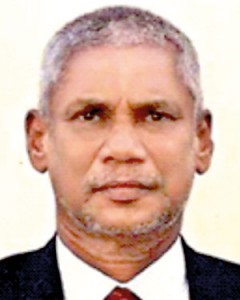 The objectives in enacting Sports Act No 25, of 1973, in the National State Assembly were based on establishing six key governing bodies.
The objectives in enacting Sports Act No 25, of 1973, in the National State Assembly were based on establishing six key governing bodies.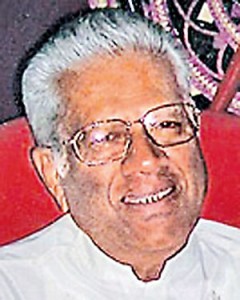 It is difficult to say I was perfect during my tenure in office. It is for others to decide whether I acted in the correct manner. However, I am confident that, in general, I did nothing wrong to harm Sports in this country. I always consulted my Secretary, Director Sports and all top level officers of the Ministry before taking any decision. All decisions were taken under the administration rules and regulations. I was totally against the appointment of politicians into Sports bodies. I can remember enforcing restrictions on the late Gamini Dissanayake (Sri Lanka Cricket) and Lalith Athulathmudali (Sri Lanka Badminton Association). I never misused or abused the powers of the Sports Law in this country. The NSF is one of the important points in the 1973 Sports Law which was established under my regime. I managed to set up this fund from the remaining funds of the sponsors who came into help us to conduct the South Asian Federation (SAF) Games in 1991 in Colombo. I started a fixed deposit from these funds and managed to establish the NSF. I received much support from Manilal Fernando (Football), Malik Samarawickrama (Rugby) and Gamini Marapona of the NSC to achieve my targets. In addition, Volleyball was made Sri Lanka’s National Sport under my watch in 1992. I also brought restrictions to the officers of the NOC, who were allowed to stay in power for two 4-year terms.
It is difficult to say I was perfect during my tenure in office. It is for others to decide whether I acted in the correct manner. However, I am confident that, in general, I did nothing wrong to harm Sports in this country. I always consulted my Secretary, Director Sports and all top level officers of the Ministry before taking any decision. All decisions were taken under the administration rules and regulations. I was totally against the appointment of politicians into Sports bodies. I can remember enforcing restrictions on the late Gamini Dissanayake (Sri Lanka Cricket) and Lalith Athulathmudali (Sri Lanka Badminton Association). I never misused or abused the powers of the Sports Law in this country. The NSF is one of the important points in the 1973 Sports Law which was established under my regime. I managed to set up this fund from the remaining funds of the sponsors who came into help us to conduct the South Asian Federation (SAF) Games in 1991 in Colombo. I started a fixed deposit from these funds and managed to establish the NSF. I received much support from Manilal Fernando (Football), Malik Samarawickrama (Rugby) and Gamini Marapona of the NSC to achieve my targets. In addition, Volleyball was made Sri Lanka’s National Sport under my watch in 1992. I also brought restrictions to the officers of the NOC, who were allowed to stay in power for two 4-year terms.